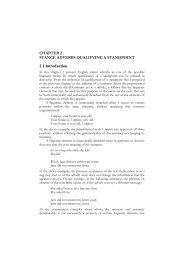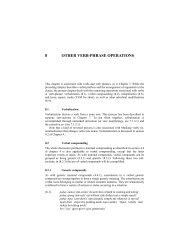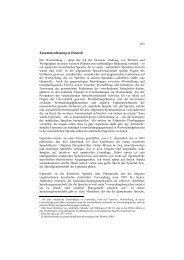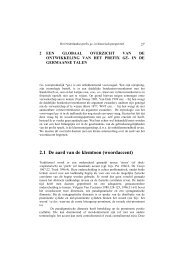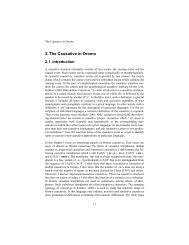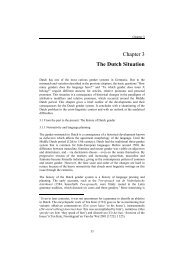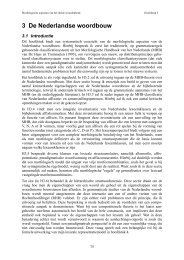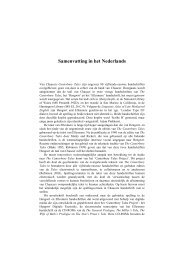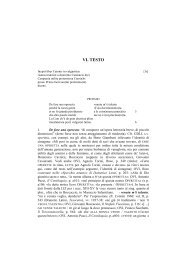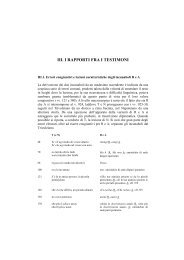Chapter 9 - LOT publications
Chapter 9 - LOT publications
Chapter 9 - LOT publications
You also want an ePaper? Increase the reach of your titles
YUMPU automatically turns print PDFs into web optimized ePapers that Google loves.
Accounts of SLI in Afrikaans<br />
(193) Target:<br />
daai klein kleintjie het hy heel melk daai klein kleintjie het hy al sy melk<br />
opdrink?<br />
opgedrink?<br />
that little little-one did he whole milk that little little-one did he all his milk<br />
up-drink-INF<br />
up-drink-PAST PART<br />
‘That little one, did he finish all his milk?’<br />
The omission of the temporal auxiliary het occurred only in the language<br />
of the children with SLI: six times in the first 100 utterances and 11<br />
times in the remainder of the 30 minutes. Examples of such errors are<br />
given in (194) and (195).<br />
(194) Target:<br />
hy jy bed gesteel<br />
hy het jou bed gesteel<br />
he you-SGL-NOM bed steal-PAST PART he did your-SGL bed steal-PAST PART<br />
‘He stole your bed’<br />
(195) Target:<br />
jy moet nie geloop nie<br />
jy moet/moes nie geloop het nie<br />
you-SGL must not walk-PAST PART not you-SGL must/must-PAST not<br />
walk -PAST PART did not<br />
‘You were not supposed to walk’ / ‘You should not have walked’<br />
Finally, on Gopnik’s Feature Deficit Hypothesis, it is not clear whether<br />
Afrikaans-speaking children with SLI should experience difficulties in<br />
terms of the production and interpretation of passive constructions,<br />
(non-)co-referential relationships, and question constructions when<br />
compared to their typically developing peers. As stated in section 9.3.3,<br />
passive constructions and those containing co-referential relationships<br />
had a very low rate of occurrence in the language samples of all three<br />
groups of children, making it difficult to draw any conclusion regarding<br />
these constructions. In terms of question constructions, the children<br />
with SLI made errors not found in the language of the typically<br />
developing 6-year-olds. However, these errors mostly related to the<br />
omission of words or constituents, and definitely not to grammatical<br />
morphemes.<br />
272




